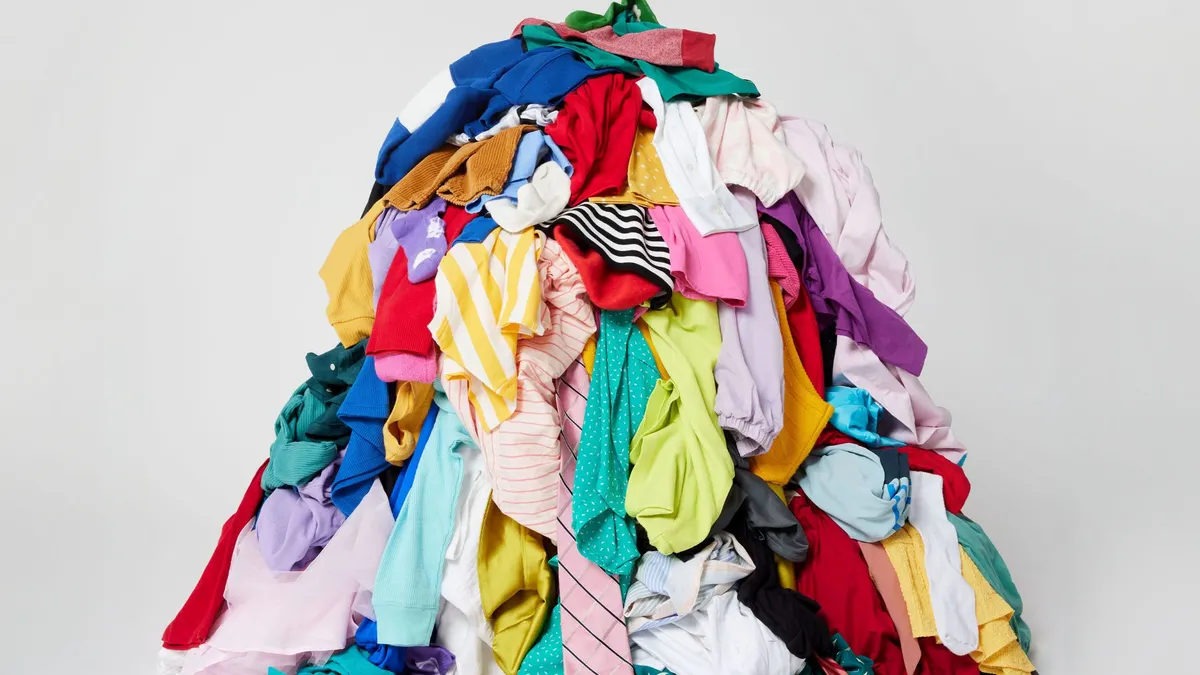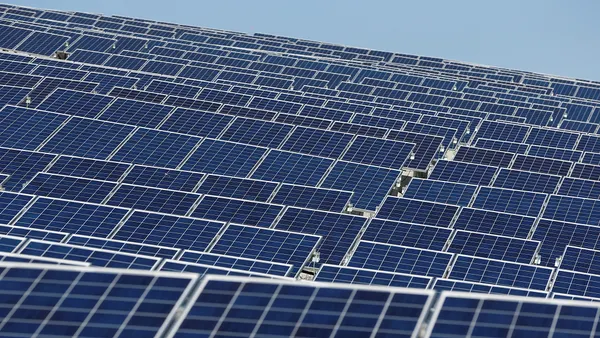Dive Brief:
- Reju, a polyester recycling firm, plans to open its first large-scale industrial plant, called “Regeneration Hub One,” in the Chemelot Industrial Park in Sittard, Netherlands, according to a Tuesday press release.
- The plant is part of a larger plan to expand Reju’s textile waste regeneration at scale, and the project will be subject to a final investment decision by the board of Reju’s parent company, Technip Energies, per the release.
- Chemelot Industrial Park is a European industrial park and innovation hub, and the location will allow Reju to use its existing infrastructure and industrial partnerships to effectively scale operations.
Dive Insight:
Annual textile consumption in Europe is now enough to fill a large suitcase for every person living on the continent, according to the release. The resulting textile waste from EU Member States in 2022 was about 94 million tonnes, per figures from a European Environment Agency briefing on Circularity of the EU textiles value chain.
Last year, Reju opened its first manufacturing facility, which is based in Frankfurt, Germany, and produces as much as 1,000 metric tons of Reju’s proprietary recycled polyester annually. At that time, the company announced plans to open a facility in Europe and another one in the U.S. by 2027.
Once the Netherlands plant is up and running, it will regenerate the equivalent of 300 million articles per year, according to the release. The resulting annual production capacity of 50,000 tonnes of recycled polyethylene terephthalate polyester, or rBHET, will then be repolymerized into Reju’s proprietary polyethylene terephthalate, or PET. That compound gets transformed into Reju Polyester, which has 50% lower carbon emissions than virgin polyester. The resulting fibers are then converted into yarns and fabrics for consumer use.
“This is a major milestone for Reju,” CEO Patrik Frisk said in the release. “With this announcement of a site for Regeneration Hub One, we are reinforcing our commitment to transforming the textile industry through innovation and collaboration.”
Reju wants to “prove that textile-to-textile circularity at scale is achievable,” Frisk added.
Reju’s Chemelot plant would be the Netherlands’ first large-scale textile recycling facility for raw material, according to Sophie Hermans, the country’s deputy prime minister and minister of climate policy and green growth.
“This is the kind of new industry we are aiming for — sustainable, circular and future-orientated,” Hermans said in the release. “It contributes to green growth and strengthens our position in circular chemistry.”
Since its launch in 2023, Reju has partnered with companies including Goodwill, Nouvelles Fibres Textiles and Rematrix.












